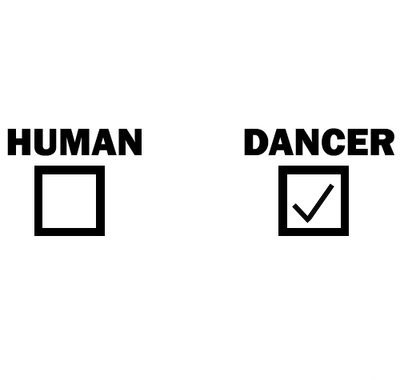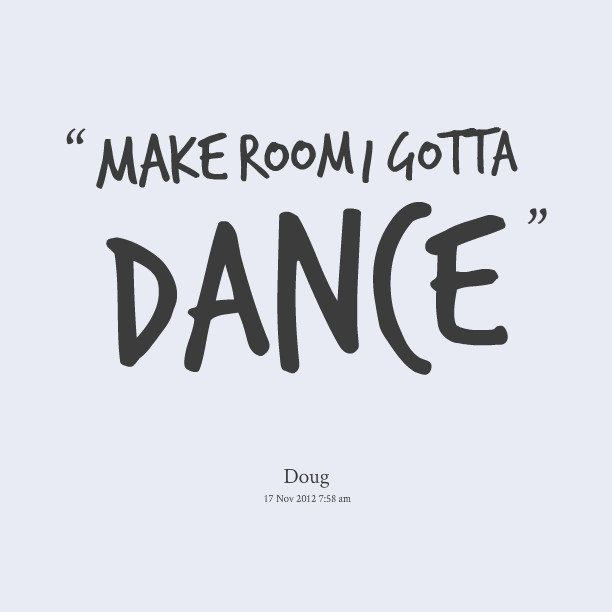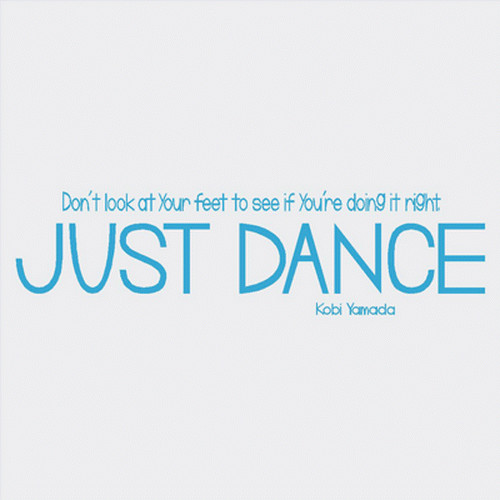There’s a distinct difference between someone who can move to music and someone who truly embodies dance. It’s more than just steps and techniques; it’s about something deeper. My understanding of what separates a good dancer from a truly exceptional one has evolved significantly since I first began my dance journey.
Initially, as a novice dancer, I equated the “best” dancers with those who could effortlessly lead me into complex moves, seemingly making anyone a capable follower. My personal benchmark for improvement was my ability to keep pace with these perceived “best” dancers – often renowned instructors or figures celebrated within the dance community. Success was measured by seamlessly following intricate leads and earning genuine enjoyment from partners who were previously less enthusiastic about dancing with me.
My perspective began to shift dramatically during the Denver Fusion Exchange (DFX). Summoning my courage, I asked two globally recognized blues dancers and instructors to dance. To my delight, they readily agreed and danced with me repeatedly throughout the weekend. What struck me most was their inclusive approach; they seemed to accept dances from everyone, regardless of experience level or prior interactions. If they were already committed to a dance, they would promise the next one and diligently seek out that person to fulfill their promise. These dancers operated on a different plane entirely. Receiving a simple “That was awesome!” from either of them gave me an unparalleled dance high. The sheer joy of knowing they enjoyed our dance as much as I did propelled my subsequent dances to new heights of energy and enthusiasm.
 Are you a human or a dancer? I
Are you a human or a dancer? I
Alt text: Humorous dance quote asking “Are you a human or a dancer?” implying dancer is a superior state of being, playful dance attitude.
What elevated them in my eyes wasn’t just their fame within the event, but their remarkable ability to connect with and enjoy dancing with anyone. While I can only speculate, it seemed their exceptional skill allowed them to find joy in dancing with partners of all levels. This inclusivity, I believe, is a defining characteristic of truly outstanding dancers.
It’s this very capacity – to genuinely enjoy dancing irrespective of a partner’s skill or dance background – that, in my opinion, distinguishes “wow” dancers from merely “excellent” ones. Many dancers known for being “the best” within their local or even international scenes often restrict themselves to dancing only with other highly skilled individuals. Beginners and intermediate dancers are often overlooked or turned down, deemed “not good enough,” unless they are current or potential students. The focus seems to be on standing out, showcasing their abilities, and performing for others. Some even avoid dancing with their own students in social settings.
Frankly, if your enjoyment of dance hinges solely on dancing with advanced partners, I question how truly exceptional a dancer you are. Relying so heavily on a partner’s level to have a good time dancing reveals a significant limitation. You don’t need a skilled lead to guide a capable follow – I’ve experienced this leading both advanced follows and those who learned their salsa basics through Zumba. With experienced follows, minimal leading is required for them to anticipate and seamlessly execute moves with sensitivity and awareness, not in a back-leading manner, but with heightened responsiveness. A tango enthusiast friend even pointed out that a particularly arrogant lead, known for his selective dance partners, isn’t actually a great leader. By only dancing with advanced follows, he perpetuates a delusion of his own superior leading ability.
I find it misguided to reach a point where you only deem “top-tier” dancers worthy of your time. When I was learning to lead salsa and practicing on the social dance floor, my greatest sense of accomplishment came from successfully leading absolute beginners and guiding them through moves. While I naturally prefer dancing with more experienced leads for the majority of my dances, I can still have incredibly fulfilling dances with beginners who only know a few basic steps. This is achieved by injecting my own style, musicality, and personality into the dance. For instance, recently I danced with a lead who seemed to know only two Cuban salsa moves and repeated them throughout the entire song. I started improvising with the “out” steps of the basic (apologies, I’m unsure of the spelling and couldn’t find it online), and by the end of the dance, the lead was joining in on my improvised styling, playfully sticking his tongue out, pretending to kick me, and thoroughly enjoying himself. It became one of my most fun and playful dances. Just this week, dancing with another beginner, I focused even more on musicality and styling, giving him ample space to express himself, resulting in another amazing dance for both of us.
 make-room-i-gotta-dance
make-room-i-gotta-dance
Alt text: Energetic dance quote “Make room, I gotta dance!” expressing enthusiasm and passion for dance, positive dance attitude.
Conversely, a dance with a more advanced lead immediately following my enjoyable beginner dance was a complete disappointment. He grabbed my hand right after my dance with the beginner ended, and I sensed a strong expectation that I would “show off” and make him look good, especially after witnessing my playful interactions during the previous dance. This annoyed me, and I consciously withheld any styling during our dance. He, however, proceeded to style all of his movements, incorporating numerous rondes and sweeps, leading in a sharp, performance-oriented style. I offered him absolutely nothing to work with. At the end of the dance, I practically had to pull my hand away, sensing he anticipated another dance, but I strongly dislike dancing with people who dance to show off. I appreciate complex moves and fast-paced dances when they arise from musicality and genuine expression, not from a desire to perform for an imaginary audience. I also dislike being asked to teach on the dance floor; my dance time is for personal expression and freedom, not for instructing my partner.
In most of my dances now, I find enjoyment even with beginner leads. I’ve learned to dance within my own body, so even if the lead is only guiding basic forward and backward steps in salsa, step-touches in blues, or simple walks and ochos in tango, I can still immerse myself in the music and enjoy the dance, rather than being bored and counting down the seconds until the song ends. (Tango can be particularly challenging in this regard. Just recently, a new lead, recently relocated from another country, practically fled when I tried to speak to him and later approached him again. My casual attire likely led him to assume I was a terrible dancer, and he wanted to avoid dancing with me altogether.) While I wouldn’t want to spend an entire dance event dancing solely with beginners, I also won’t display pained expressions or make my partner feel inadequate for “wasting my time.” As long as I am dancing and connected to the music within myself, the lead’s experience level becomes secondary. Every beginner I’ve danced with recently has left the dance floor beaming. The Cuban salsa lead who playfully stuck his tongue out even called me “a delight to dance with.”
In our blues dance community, two follows are consistently praised as exceptional dancers, despite having vastly different styles. Leads often describe one as incredible because she is perpetually in motion, always dancing, enhancing every lead regardless of its complexity. I’m only now beginning to fully understand this sentiment. When your love for and connection to the music is so profound that you are constantly dancing and making the dance your own, regardless of who is leading, that, I believe, is the hallmark of an exceptional follow (and lead). With this approach, there truly is no such thing as a bad dance. I have moments of pure following and moments where my personality shines through. I wish this particular follow still lived in Vancouver (I believe she moved away) so I could observe her more closely and better understand what leads were describing, but I’m grateful to have learned from her example nonetheless, even indirectly.
Lately, I’ve been dancing with many advanced salsa dancers and observed that the best among them are those who are deeply connected to the music, feeling the rhythm and enjoying the musicality. They are also the ones who most frequently initiate “break-aways” (a blues term) to give me space for “shines” (a salsa term) and allow me to express myself individually. They are capable of intricate moves but also understand when to simply relax and enjoy the music together.
 inspirational-dance-quotes-kobi-yamada
inspirational-dance-quotes-kobi-yamada
Alt text: Inspirational dance quote by Kobi Yamada emphasizing the emotional depth of dance: “Dance is the hidden language of the soul.”, reflective dance attitude.
I apply this same philosophy to solo dancing. Recently, for a dance audition, I was asked to name my favorite dancers, something I hadn’t consciously considered before. I listed three local street dancers and two west coast swing follows (one local and one international). The common thread among them was their unwavering focus on feeling, musicality, and the sheer joy of dancing. They are dancers who visibly lose themselves in the music, letting go, being uninhibited, and allowing their personalities to shine. I find dance cyphers challenging because they often trigger a “game face” mentality, where dancers try too hard to impress when it’s their turn. They over-dance, striving for grand gestures and showcasing their skills, which can appear forced because they are overly concerned with external validation. The dancers I admire are already so accomplished that they dance authentically, without needing to prove anything. This genuine expression makes them far more captivating to watch than those focused on executing impressive tricks.
I am fortunate to be surrounded by positive role models who guide me on my dance journey.
I anticipate some might misinterpret this post, perhaps twisting my words to suggest I’m an arrogant dancer with an inflated sense of self (a salsa dancer actually spread rumors about me to women he dated and possibly other dancers, claiming I thought I was a great dancer when I wasn’t, simply because I wasn’t interested in dating him, while his primary goal in the dance scene seemed to be romantic pursuits). The truth is, I am acutely aware of my ongoing growth as a dancer and am committed to continuous learning and development. Dance has become an integral part of my life, far beyond a casual hobby or pastime.
I eagerly anticipate further evolution in my dance attitude, aiming to cultivate the ability to have a fantastic dance experience with anyone and everyone!
